Hormonal belly fat affects millions worldwide, causing frustration and health concerns. As someone who’s battled this stubborn form of weight gain, I understand the challenges firsthand.
This comprehensive guide explores the most effective supplements and lifestyle changes to combat hormonal belly fat, helping you achieve a leaner, healthier midsection.
Understanding Hormonal Belly Fat
Hormonal belly fat accumulation stems from imbalances in our endocrine system. The primary factors contributing to this type of fat storage include:
- Cortisol imbalance
- Estrogen dominance
- Insulin resistance
- Thyroid dysfunction
When these hormones are out of balance, our bodies tend to store excess fat around the midsection. This type of fat isn’t just cosmetically undesirable – it’s linked to increased health risks, including cardiovascular disease and type 2 diabetes.
Supplements to Combat Hormonal Belly Fat
While no magic pill instantly melts away hormonal belly fat, certain supplements can support hormone balance and fat loss when combined with a healthy diet and lifestyle. Here are some of the most promising options:
1. Omega-3 Fatty Acids
Omega-3s, particularly EPA and DHA found in fish oil, are essential for fighting inflammation and supporting overall hormone balance. These fatty acids may also improve insulin sensitivity and promote fat burning.
Taking a high-quality fish oil supplement (or algae-based option for vegetarians and vegans) can make a noticeable difference in reducing bloating and supporting a healthier body composition. I’ve personally experienced improvements in my energy levels and reduced inflammation after incorporating omega-3s into my daily routine.
When choosing an omega-3 supplement, look for products that provide at least 1000mg of combined EPA and DHA per serving. It’s also important to consider the source and purity of the supplement, as some fish oils may contain contaminants.
Recommended Product: SoActive® Omega 3 EPA
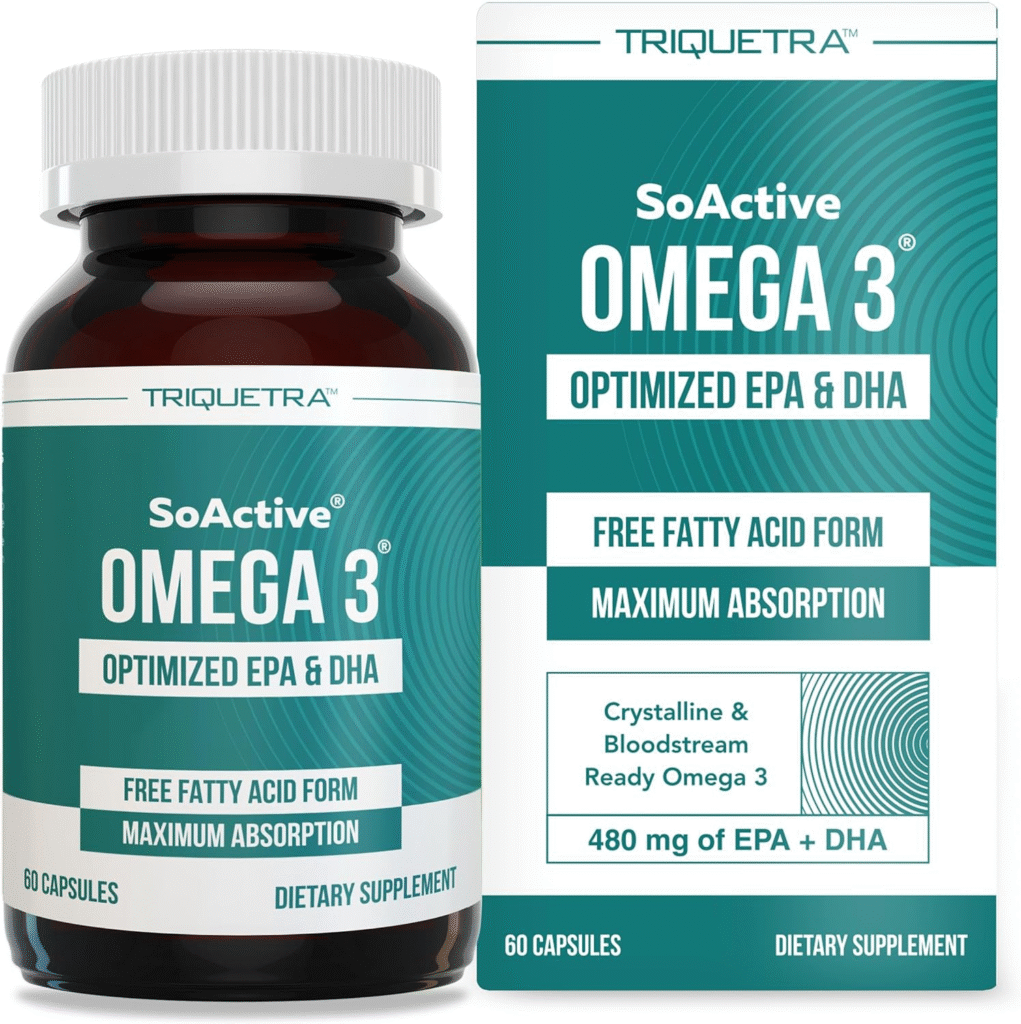
2. Adaptogenic Herbs
Adaptogens are nature’s stress-busters, helping our bodies adapt to various stressors and promoting overall balance. Some of the most effective adaptogens for hormonal belly fat include:
Ashwagandha
This ancient herb has been shown to lower cortisol levels and reduce stress-related weight gain. Studies have demonstrated that ashwagandha can significantly decrease serum cortisol levels, which may help reduce abdominal fat accumulation.
I’ve personally experienced improved sleep and reduced stress-eating tendencies when taking ashwagandha regularly. The recommended dosage typically ranges from 300-500mg of a standardized extract, taken once or twice daily.
Recommended Product: Live Conscious KSM-66 Ashwagandha Supplement

Rhodiola rosea
Known for combating fatigue and improving fat burning during exercise, Rhodiola can be a game-changer for those struggling with low energy and stubborn belly fat. Research suggests that Rhodiola may help increase the body’s sensitivity to its own fat-burning hormones, potentially leading to improved weight loss results.
A typical dosage of Rhodiola extract ranges from 200-600mg per day, taken in divided doses. It’s best to start with a lower dose and gradually increase as needed.
Recommended Product: Rhodiola Rosea Supplement 500mg
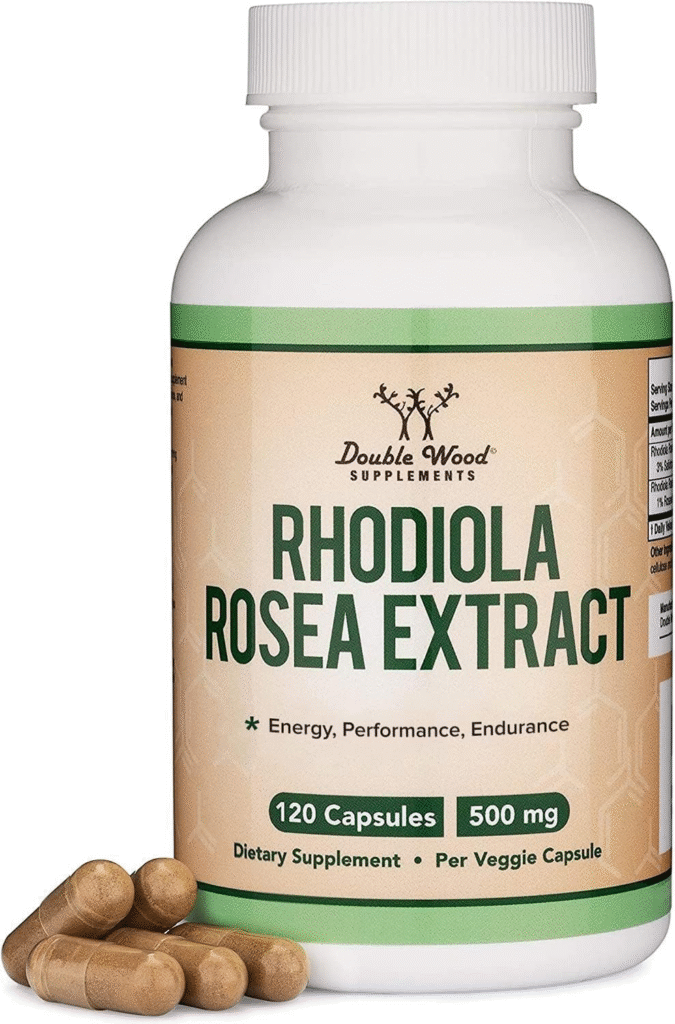
Holy basil
Also known as Tulsi, this herb supports balanced cortisol levels and may help reduce stress-induced overeating. Holy basil has been used in traditional Ayurvedic medicine for centuries and has shown promise in modern research for its stress-reducing and metabolic benefits.
You can consume holy basil as a tea or in supplement form. If using a supplement, typical dosages range from 300-2000mg of dried leaf per day, divided into multiple doses.
Recommended Product: tnvitamins Holy Basil Capsules
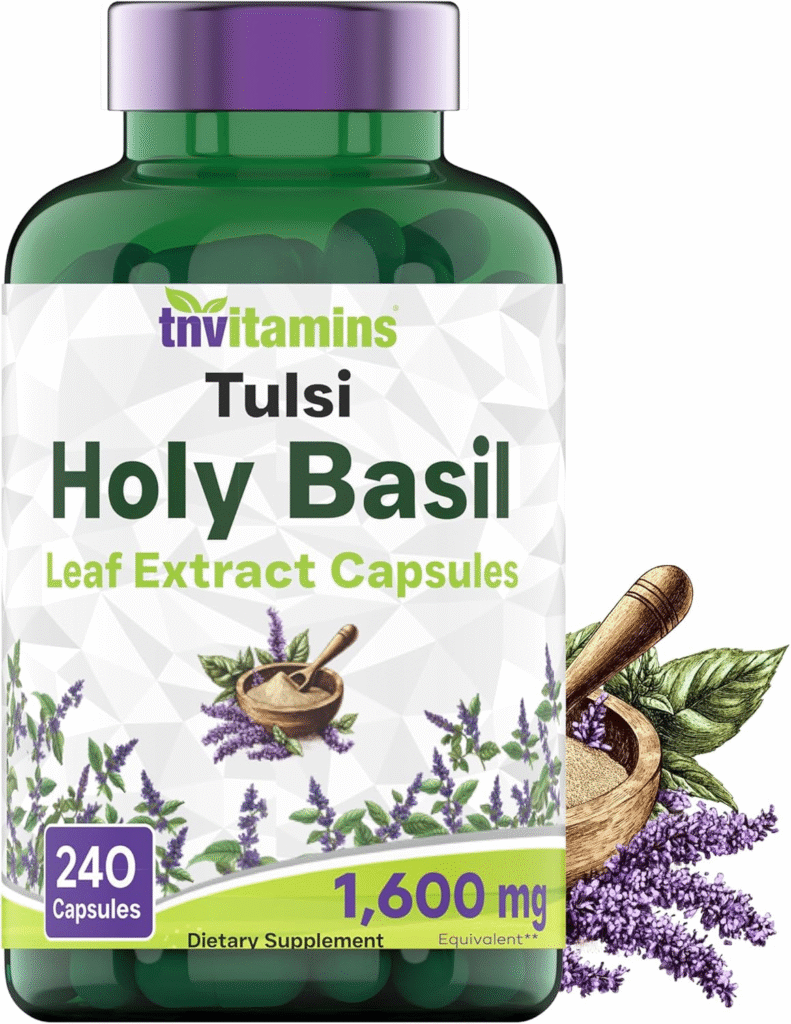
3. Probiotics
A healthy gut microbiome is essential for hormone balance and weight management. Probiotic supplements can help restore useful gut bacteria, potentially improving insulin sensitivity and reducing inflammation.
When choosing a probiotic supplement, look for a high-quality, multi-strain product with at least 10 billion CFUs per serving. Some specific strains that have shown promise for weight management include Lactobacillus gasseri, Lactobacillus rhamnosus, and Bifidobacterium lactis.
I’ve found that incorporating probiotics into my daily routine has helped with digestion, reduced bloating, and supported more consistent energy levels throughout the day. Remember that the effects of probiotics can take several weeks to become noticeable, so consistency is key.
Recommended Product: Wholesome Wellness Organic Raw Probiotics

4. Vitamin D
Many people are deficient in vitamin D, which plays a crucial role in hormone regulation and metabolism. Supplementing with vitamin D3 may help improve insulin sensitivity and support healthy thyroid function.
Research has shown that vitamin D deficiency is associated with increased abdominal fat and that supplementation may help reduce waist circumference in overweight individuals. The recommended daily intake of vitamin D varies, but many experts suggest 1000-4000 IU per day for adults.
I always recommend getting your vitamin D levels checked by a healthcare provider to decide the suitable dosage for you. In my experience, optimizing vitamin D levels has led to improved mood, energy, and a more effective time maintaining a healthy weight.
Recommended Product: Sports Research Vitamin D3
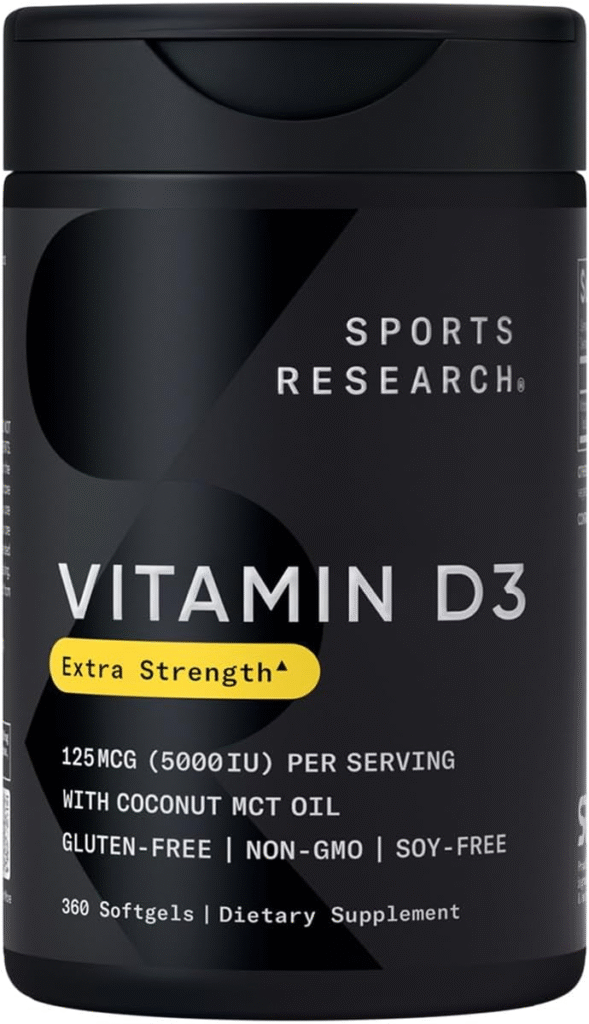
5. Magnesium
Magnesium is involved in hundreds of biochemical reactions in the body, including those related to hormone balance and metabolism. This mineral can help reduce cortisol levels, improve insulin sensitivity, and promote better sleep – all of which can contribute to reduced belly fat.
Studies have shown that magnesium supplementation can improve insulin sensitivity and reduce waist circumference in overweight individuals. The recommended daily intake of magnesium for adults ranges from 310-420mg, depending on age and gender.
I’ve found that taking magnesium before bed improves my sleep quality and helps reduce stress-related cravings. It also supports a flatter tummy in the morning, likely because of its ability to relax muscles and reduce water retention.
Recommended Product: Natural Rhythm Triple Calm Magnesium

6. Berberine
This powerful compound, found in several plants, has been shown to improve insulin sensitivity and support healthy blood sugar levels. Some studies suggest that berberine may be as effective as certain diabetes medications in managing blood sugar and promoting fat loss.
Research has demonstrated that berberine can significantly reduce waist circumference and improve lipid profiles in people with metabolic syndrome. The typical dosage used in studies ranges from 900-1500mg per day, divided into multiple doses.
While it’s not as well-known as some other supplements, berberine has gained popularity in recent years for its potential to support metabolic health and reduce abdominal fat. As with any supplement, it’s important to talk to a healthcare provider before starting berberine, especially if you’re taking other medications.
Recommended Product: NutriFlair Premium Berberine HCL 1200mg
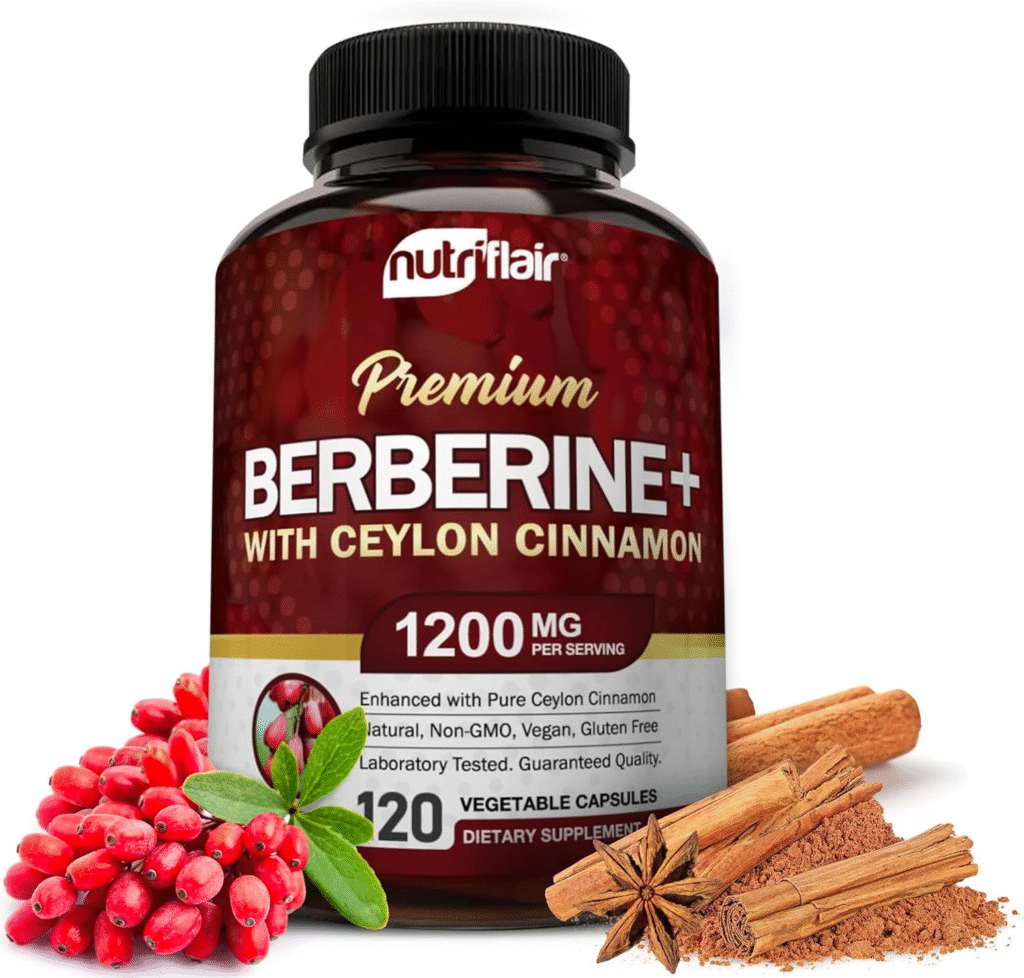
7. Inositol
Inositol, particularly myo-inositol, has shown promise in improving insulin sensitivity and hormone balance, especially in women with PCOS (Polycystic Ovary Syndrome). It may help reduce testosterone levels and support healthy ovarian function.
Studies have demonstrated that inositol supplementation can improve insulin sensitivity, reduce androgen levels, and promote weight loss in women with PCOS. The typical dosage used in research ranges from 2-4 grams per day, often divided into two doses.
I’ve seen remarkable results with inositol supplementation in clients dealing with PCOS-related weight gain and hormonal imbalances. Many report improvements in menstrual regularity, skin health, and easier weight management.
Recommended Product: Jarrow Formulas Inositol
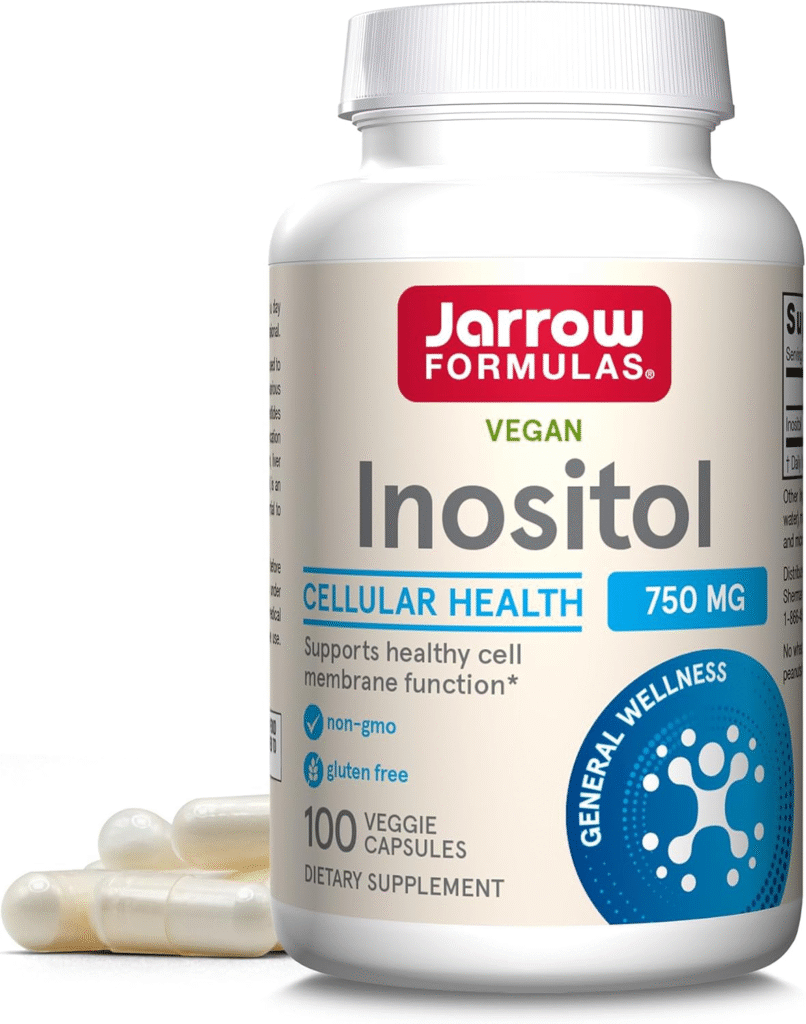
Lifestyle Changes to Support Hormone Balance
While supplements can be helpful, they’re most effective when combined with lifestyle changes that support overall hormone balance and health. Here are some key strategies to apply:
1. Prioritize Sleep
Adequate, quality sleep is crucial for hormone balance and weight management. Aim for 7-9 hours of sleep per night and establish a consistent sleep schedule.
Research has shown that sleep deprivation can lead to increased cortisol levels, decreased insulin sensitivity, and increased appetite – all factors that contribute to hormonal belly fat. To improve your sleep quality:
- Create a relaxing bedtime routine
- Minimize exposure to blue light from electronic devices before bed
- Keep your bedroom cool, dark, and quiet
- Avoid caffeine and large meals close to bedtime
I’ve found that using blue light blocking glasses in the evening and keeping a consistent sleep schedule has dramatically improved my hormone balance and reduced stress-related belly fat. It’s amazing how much of a difference quality sleep can make in overall health and weight management.
2. Manage Stress
Chronic stress is a major contributor to hormonal imbalances and belly fat accumulation. Cortisol, often called the “stress hormone,” can lead to increased appetite and cravings for high-calorie foods when chronically elevated.
Incorporate stress-reduction techniques such as:
- Meditation
- Deep breathing exercises
- Yoga
- Regular nature walks
- Journaling
- Progressive muscle relaxation
I can’t stress enough how important stress management is for hormonal balance. When I neglect my stress-reduction practices, I notice an almost immediate increase in belly bloat and cravings for unhealthy foods.
Consistency with stress management techniques is key to seeing long-term benefits.
3. Balance Your Diet
A balanced diet plays a crucial role in managing hormonal belly fat. Focus on a whole foods-based diet rich in:
- Lean proteins (e.g., fish, poultry, legumes)
- Healthy fats (e.g., avocados, nuts, olive oil)
- Complex carbohydrates (e.g., whole grains, sweet potatoes)
- Fiber-rich vegetables
- Moderate amounts of fruit
Consider reducing or eliminating:
- Processed foods
- Refined sugars
- Excessive alcohol consumption
I’ve found that adopting a Mediterranean-style diet has been incredibly effective for balancing hormones and reducing belly fat. This eating pattern emphasizes whole, unprocessed foods and has been associated with improved insulin sensitivity and reduced inflammation.
Pay attention to portion sizes and try to eat mindfully, focusing on hunger and fullness cues as opposed to strict calorie counting. Including protein and fiber in each meal can help stabilize blood sugar levels and reduce cravings.
4. Incorporate Regular Exercise
A combination of strength training and cardiovascular exercise can help balance hormones and reduce belly fat. Here’s why each type of exercise is important:
Strength Training
Resistance exercises help build and maintain muscle mass, which is crucial for a healthy metabolism. Muscle tissue is more metabolically active than fat tissue, meaning it burns more calories even at rest.
Aim for at least 2-3 strength training sessions per week, targeting all major muscle groups.
Cardiovascular Exercise
Cardio helps burn calories and improve insulin sensitivity. High-Intensity Interval Training (HIIT) has been shown to be particularly effective for burning fat and improving insulin sensitivity.
HIIT involves short bursts of intense exercise followed by periods of rest or lower-intensity activity.
Don’t forget about the power of low-intensity activities like walking, too. I make it a point to get at least 10,000 steps a day, which has made a noticeable difference in my waistline and overall well-being.
Walking after meals can be especially useful for blood sugar control.
The best exercise routine is one that you enjoy and can stick to consistently. Experiment with different types of activities to find what works best for you.
5. Practice Intermittent Fasting
Some studies suggest that intermittent fasting can help improve insulin sensitivity and promote fat burning. Common approaches include:
- The 16/8 method: Fasting for 16 hours and eating within an 8-hour window
- The 5:2 diet: Eating normally for 5 days and restricting calories for 2 non-consecutive days
Intermittent fasting may help reduce insulin levels and increase human growth hormone (HGH), both of which can contribute to fat loss. It may also help reduce overall calorie intake and improve metabolic flexibility.
I’ve experimented with various forms of intermittent fasting and found that it can be a powerful tool for reducing hormonal belly fat when done correctly and consistently. However, remember that intermittent fasting isn’t suitable for everyone, particularly those with a history of eating disorders or certain medical conditions.
6. Limit Exposure to Endocrine Disruptors
Endocrine disruptors are chemicals that can interfere with hormone function and potentially contribute to weight gain and hormonal imbalances. To reduce your exposure:
- Choose organic produce when possible to avoid pesticides
- Use natural cleaning products
- Opt for BPA-free food storage containers
- Avoid plastic water bottles, especially when heated
- Use natural personal care products
- Filter your drinking water
This step is often overlooked, but I’ve noticed significant improvements in my hormone balance and weight management since becoming more mindful of environmental toxins. It’s not always possible to eliminate all exposure, but every small change can make a difference.
7. Consider Hormone Testing
If you suspect a significant hormonal imbalance, consider working with a healthcare provider to test your hormone levels. This can help identify specific imbalances and guide a more targeted approach to treatment.
Common hormone tests that may be relevant for hormonal belly fat include:
- Cortisol (preferably a 24-hour saliva test)
- Thyroid panel (TSH, free T3, free T4)
- Insulin and glucose
- Sex hormones (estrogen, progesterone, testosterone)
I’ve found that periodic hormone testing has been invaluable in fine-tuning my approach to managing hormonal belly fat and overall health. It’s allowed me to address specific imbalances more effectively and track progress over time.
Key Takeaways
- Hormonal belly fat needs a multifaceted approach combining supplements, diet, exercise, and lifestyle changes.
- Supplements like omega-3s, adaptogens, and probiotics can support hormone balance and fat loss.
- Prioritizing sleep, managing stress, and maintaining a balanced diet are crucial for hormonal health.
- Regular exercise, including both strength training and cardio, helps balance hormones and reduce belly fat.
- Intermittent fasting and reducing exposure to endocrine disruptors can enhance results.
- Consistency and patience are key – sustainable changes take time to show results.
- Consider hormone testing for a more targeted approach to treatment.
Frequently Asked Questions
What causes hormonal belly fat?
Hormonal belly fat is primarily caused by imbalances in key hormones like cortisol, estrogen, insulin, and thyroid hormones. Factors such as chronic stress, poor sleep, an unhealthy diet, and lack of exercise can contribute to these imbalances.
How long does it take to lose hormonal belly fat?
The time it takes to lose hormonal belly fat varies depending on person factors and the extent of hormonal imbalances. With consistent lifestyle changes and suitable supplementation, some people may start seeing improvements in 4-8 weeks, while others may take several months to see significant changes.
Can stress really cause belly fat?
Yes, chronic stress can lead to increased cortisol production, which can promote fat storage, especially around the midsection. Stress management techniques like meditation, yoga, and regular exercise can help reduce stress-related belly fat.
Are there specific foods that help balance hormones?
Several foods can support hormone balance, including fatty fish (for omega-3s), leafy greens (for magnesium and other nutrients), cruciferous vegetables (for estrogen balance), and probiotic-rich foods like yogurt and kefir (for gut health).
Does intermittent fasting help with hormonal belly fat?
Intermittent fasting may help improve insulin sensitivity and promote fat burning, which can be useful for hormonal belly fat. However, it’s not suitable for everyone and should be approached cautiously, especially for people who have a history of disordered eating.
Can birth control pills cause hormonal belly fat?
Some women may experience weight gain or changes in fat distribution when using hormonal birth control. If you suspect your birth control is contributing to belly fat, talk to your healthcare provider about choice options.
How does sleep affect hormonal belly fat?
Poor sleep can disrupt hormone balance, particularly cortisol and insulin levels, which can contribute to belly fat accumulation. Prioritizing 7-9 hours of quality sleep per night can help support hormone balance and weight management.
Is it possible to target hormonal belly fat with exercise?
While you can’t spot-reduce fat from specific areas, a combination of strength training and cardiovascular exercise can help balance hormones and reduce overall body fat, including belly fat.
Can menopause cause hormonal belly fat?
Yes, the hormonal changes during menopause, particularly the decrease in estrogen, can lead to increased fat storage around the midsection. Adopting a healthy lifestyle and considering hormone replacement therapy (under medical supervision) may help manage this issue.
How does insulin resistance contribute to belly fat?
Insulin resistance can lead to increased fat storage, particularly around the abdomen. Managing blood sugar levels through diet, exercise, and potentially supplements like berberine can help improve insulin sensitivity and reduce belly fat.
Disclaimer
The information contained in this post is for general information purposes only. The information is provided by Effective Solutions for Hormonal Belly Fat: Supplements and Lifestyle Changes and while we endeavor to keep the information up to date and correct, we make no representations or warranties of any kind, express or implied, about the completeness, accuracy, reliability, suitability or availability with respect to the website or the information, products, services, or related graphics contained on the post for any purpose.

